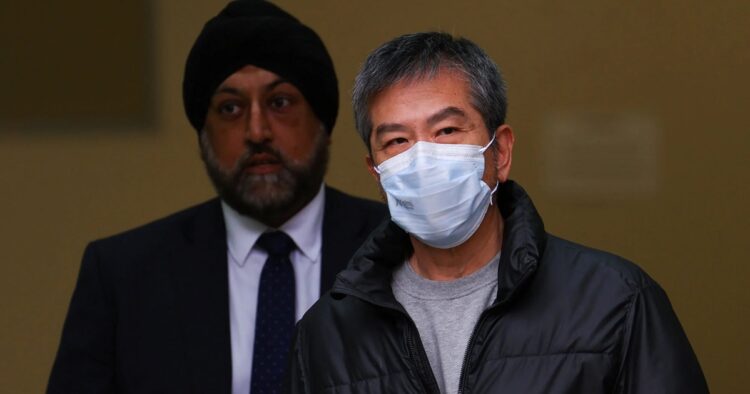Responding to recent espionage allegations, Britain’s foreign ministry summoned the Chinese ambassador, Zheng Zeguang, on Tuesday. The meeting aimed to express the UK’s strong disapproval of reported Chinese-backed espionage and cyber attacks occurring within British borders.
The move comes after three individuals were charged with spying for Hong Kong, prompting concerns about national security.
David Cameron, Britain’s foreign minister, directed officials to convey a clear message to Ambassador Zheng Zeguang, condemning what the Foreign, Commonwealth and Development Office (FCDO) described as unacceptable behavior orchestrated by China.

The FCDO explicitly highlighted a troubling pattern of cyber attacks, espionage activities, and alleged bounty offers directed against the UK.
The summoning of the ambassador followed the appearance of three men in a London court on Monday, facing charges related to aiding Hong Kong’s foreign intelligence service within the UK. These offenses fall under the UK’s National Security Act, reflecting the seriousness with which the British government regards such actions.
Beyond the UK, concerns about China’s purported cyber and espionage activities have been mounting in the US and across Europe. The summoning of the Chinese ambassador underscores broader international unease regarding China’s behavior in cyberspace and intelligence operations.
ALSO READ: “UK Charges 3 Men for Assisting Hong Kong Intelligence”
Separately on the same day, the head of Britain’s spy agency, GCHQ, emphasized the escalating cyber threat posed by China to the UK. The agency identified China as its top priority concerning cybersecurity risks, highlighting the growing significance of countering Chinese cyber activities.
Earlier in May, allegations surfaced that a “malign actor,” widely speculated to be China according to British media citing government sources, had potentially compromised the payments system utilized by the British armed forces.
Beijing swiftly dismissed these accusations as absurd, further fueling tensions between the two nations.
The charges against the three individuals accused of collaborating with the Hong Kong agency involve allegations of undertaking information gathering, surveillance, and deceptive acts within Britain. The severity of these charges reflects the UK’s determination to address threats to its national security and sovereignty.
Reacting to the charges, the Chinese Embassy in London refuted Britain’s claims, accusing the UK of fabricating charges against the individuals and asserting that it has no authority to intervene in Hong Kong’s affairs.
The contentious relationship between the two countries continues to be strained by issues relating to Hong Kong, a former British colony that returned to Chinese sovereignty in 1997 after 156 years of British rule.

















Comments